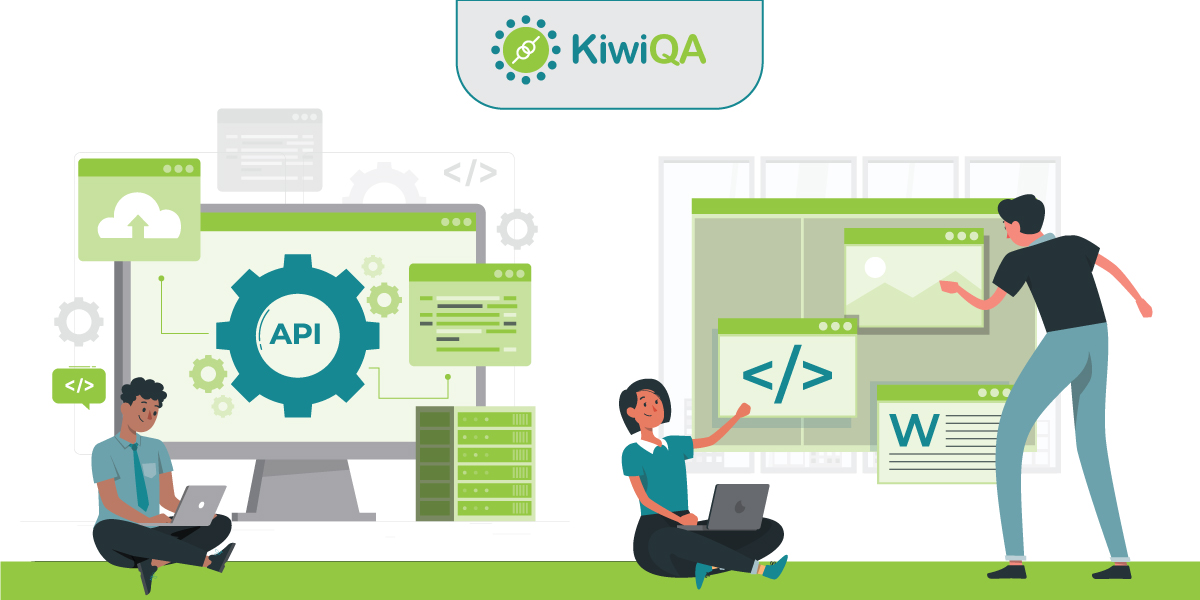API Testing Of Web Applications

 KiwiQA
KiwiQAWhen accessing websites (or web applications), you might have come across scenarios where third-party APIs (Application Programming Interfaces) have been used for realizing certain requirements. For example, almost all the websites (or web applications) make use of OAuth 2.0 for accessing Google, Facebook, and Twitter APIs.
On similar lines, you could have your cloud software product provide Cloud APIs to the developers through which they can interact with the cloud provider’s services. Before the APIs can be released to the end users (or developers), they must be tested on all the aspects related to functionality, security, reliability, amongst others.
For instance, many cloud testing providers offer REST APIs that let users fetch relevant details (e.g. test ID, test duration, test status, and more). Before the APIs are used by the end users, it becomes necessary to do an internal testing to ensure that the APIs are working as expected. So where does API testing fit in the big scheme of things as far as testing is concerned?
API testing must be done as a part of integration tests since it validates the logic of the build architecture within a stipulated time frame. A web application testing company that has expertise in running API tests can be extremely beneficial in expediting the process of API testing. In this blog, we look at all the integral aspects of API testing, particularly from a web application point of view.
The learnings of this blog can be used in devising an API testing strategy that can be scaled as the complexity of application grows. So, let’s get started…
In simple terms, APIs sit between the presentation layer and database layer. For starters, API testing is a form of testing through which the APIs are tested from the lens of an end user.
API is an integral part of integration testing since it tests the business logic on the whole, rather than focusing only on a single unit of code like it is done in unit testing. At the end of a thorough round of API testing, you would have tested the business performance of the application along with the functionalities of the APIs.
Irrespective of the type of API being tested, one thing is common in all the APIs is that the API provides a way for the users to fetch (or communicate) with the server.
Once the communication is established and the intended job of the API is complete, the API response is checked to ensure that the API is working as expected.
API testing validates the APIs from a security, scalability, reliability, and functionality standpoint. The strategies used for API testing might differ based on the functionality of the API, which is why partnering with a proven web application testing services company reaps significant benefits in the short-term as well as long-term.
API is an integral part of integration testing since it tests the business logic on the whole, rather than focusing only on a single unit of code like it is done in unit testing. At the end of a thorough round of API testing, you would have tested the business performance of the application along with the functionalities of the APIs.
Also Read: Top 5 API Testing Myths
As mentioned earlier, the same yardstick cannot be used for testing of APIs since a lot matters on what the API is supposed to do. Here are some of the most prominent forms of API testing:
In any form of API, there is a request and response aspect involved in the same. API requests are sent from the client side and the execution request is obeyed on the server side.
Once the API execution is complete, the response is sent back from the server to the client. The response code indicates whether the API execution was successful or not. All of this is done as a part of functional testing.
It is a fact that the load on the server is expected to increase dramatically when a large number of customers are simultaneously accessing the servers at the same time.
On similar lines, the APIs being designed in the product must also be scalable enough to handle a large number of simultaneous requests. Load testing of APIs helps in testing the API from a scalability and reliability point of view since the performance of the APIs are gauged against different traffic volumes.
Cyberattacks are on the rise which is why security must be taken up on a high priority. Whether the API is sending the request (along with the metadata) or receiving the response (with the metadata), it becomes essential to focus on the security of the data.
Data must be secured whether it is in motion or at rest. All the APIs respond to an HTTP request via a response which indicates whether the API execution was successful or not. The response to the invocation of request is normally in the JSON (JavaScript Object Notation) format.
Also Read: 5 Types of Tests To Perform On Your APIs
As the name indicates, penetration testing of APIs tests the API from a security standpoint. Cyber attacks are simulated to ensure that the security aspects of the APIs are all met.
Pen testing identifies the security loopholes in the APIs so that more secure and robust APIs can be used by the intended users.
Web services is a part of managed code that can be activated remotely using HTTP requests. SOAP (Simple Object Access Protocol) Web Services and REST (Representational State Transfer) Web Services are the two major forms of API types that are normally used in web-based products. However, in our experience, we have seen that REST APIs are used the most in web applications.
POST, GET, PUT and DELETE are the standard HTTP methods that map into CRUD (Create, Read, Update, and Delete) operations of every resource.
REST APIs return the appropriate status code (e.g. Status Code 200 for successful operation) through which you can identify the status of the API execution.
For performing API testing, you first need to prepare a detailed API test specification. The specification must highlight the test requirements and the test methodology in great detail. The specification must also include details about the input parameters, expected API response, and the depth till which the tests would be conducted.
Lastly, you should choose a web API testing tool that lets you automate the API testing process. For instance, POSTMAN is an exceptional API testing tool that is used for automated testing of web APIs. However, the choice of tool purely depends on the project budget and requirements.
Also Read: Most Common Mistakes Developers Make While API Testing
APIs have become an integral part of the developer ecosystem, which is why it becomes essential to test the APIs from start to finish. API testing ensures that all the aspects of the API (i.e. security, scalability, reliability, functionality) are working as expected.
Normally, REST APIs (or RESTful APIs) are used for exchanging securely over the internet. Since most web applications and websites leverage the various aspects of cloud technologies, REST APIs of that application have to be tested thoroughly before developers start using the same. An experienced web application testing services company like KiwiQA can help in expediting the API testing process.
Subscribe to our newsletter for some hand-picked insights and trends! Join our community and be the first to know about what's exciting in software testing.
Welcome to the testing tales that explore the depths of software quality assurance. Find valuable insights, industry trends, and best practices for professionals and enthusiasts.

Fill out and submit the form below, we will get back to you with a plan.
 CRN:
22318-Q15-001
CRN:
22318-Q15-001 CRN:22318-ISN-001
CRN:22318-ISN-001 CRN:22318-IST-001
CRN:22318-IST-001